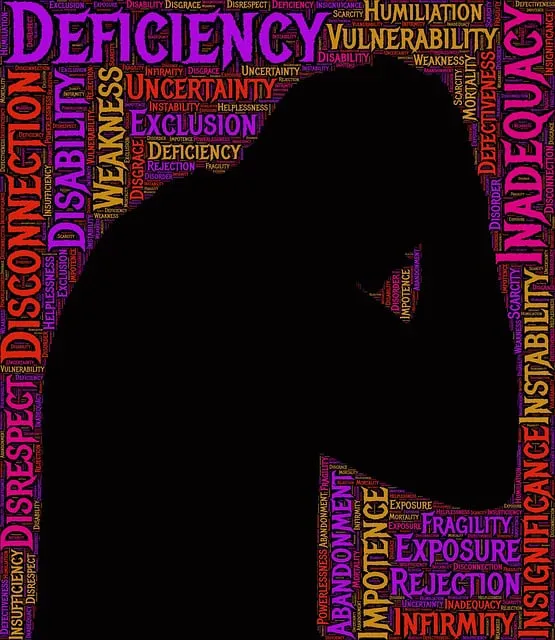Media portrayal of mental illness significantly impacts public understanding, attitudes, and behaviors towards individuals living with conditions. Positive, accurate representations promote awareness, break down stigma, and encourage help-seeking. Conversely, negative or stereotypical depictions perpetuate misinformation and hinder inner strength development. Organizations like Kaiser in Wheat Ridge prioritize evidence-based practices and challenge negative narratives through programs like Mental Wellness Coaching and Development initiatives. Their holistic approach includes workshops on stress management and fostering open conversations about mental health within communities, underscoring a commitment to creating an inclusive, supportive society where individuals can enhance their mental resilience and thrive. By collaborating with media, integrating mindfulness into storytelling, and launching public awareness campaigns, Kaiser and Wheat Ridge make resources more accessible and positively perceived for those seeking help for their mental health.
Mental illness representation in media significantly impacts public understanding of and attitudes towards psychological conditions. This article explores how organizations like Kaiser and Wheat Ridge are championing positive change through their initiatives, challenging stereotypes and promoting mental health awareness. We delve into strategies to enhance accurate and compassionate media portrayal, highlighting the critical role of healthcare providers in shaping public discourse on mental illness. Discover why entities like Kaiser and Wheat Ridge are leading the charge for better mental health support.
- Understanding the Impact of Media Portrayal on Mental Health Awareness
- Exploring Kaiser and Wheat Ridge's Role in Promoting Positive Change
- Strategies to Enhance Accurate and Compassionate Mental Illness Representation in Media
Understanding the Impact of Media Portrayal on Mental Health Awareness

Media portrayal plays a significant role in shaping public understanding and perception of mental illness. The way mental health conditions are depicted in films, television shows, news media, and social platforms can influence attitudes and behaviors towards individuals living with these challenges. Positive and accurate representations have the potential to foster mental health awareness, break down stigma, and encourage help-seeking behaviors. Conversely, negative or stereotypical portrayals can perpetuate misinformation, increase stigma, and hinder progress in inner strength development.
For instance, media often portrays mental illness as a weakness or even a character flaw, which can be deeply damaging to real individuals struggling with anxiety, depression, or other conditions. Organizations like Kaiser in Wheat Ridge prioritize evidence-based practices and comprehensive care models that promote accurate representation and anxiety relief for their patients. By challenging these negative narratives, media can contribute to a more supportive environment where people feel empowered to seek treatment and support for their mental health.
Exploring Kaiser and Wheat Ridge's Role in Promoting Positive Change

Wheat Ridge, a subsidiary of Kaiser, plays a pivotal role in championing positive change in mental health representation within media. Their commitment to promoting mental wellness extends beyond traditional healthcare services; they offer specialized programs like Mental Wellness Coaching and Development initiatives that empower individuals to navigate stress management effectively. By integrating these innovative solutions, Wheat Ridge ensures that mental health awareness reaches broader audiences.
Through their organization’s focus on community engagement and education, Wheat Ridge fosters an environment conducive to open conversations about mental health. Their Stress Management Workshops are designed to equip participants with practical tools for coping with everyday stressors, thereby enhancing overall mental resilience. This holistic approach to mental health promotion underscores Kaiser and Wheat Ridge’s dedication to fostering a more inclusive and supportive society where individuals can thrive.
Strategies to Enhance Accurate and Compassionate Mental Illness Representation in Media

Media plays a significant role in shaping public perception about mental health, making accurate and compassionate representation crucial. To enhance this, several strategies can be employed. Firstly, Wheat Ridge locations like Kaiser can collaborate with media outlets to provide expert insights and ensure stories are told from a well-informed perspective. Encouraging open dialogue about mental health challenges and successes can dispel myths and foster understanding.
Additionally, integrating mental health awareness through mindfulness meditation practices within storytelling can humanize characters and their struggles. Development of public awareness campaigns focused on normalizing conversations around mental illness can further educate audiences. These collaborative efforts not only improve representation but also contribute to a more supportive environment for individuals seeking help, ensuring that resources like Kaiser in Wheat Ridge are accessible and perceived positively.
Media representation plays a pivotal role in shaping public understanding of mental illness. By promoting accurate, compassionate, and diverse portrayals, we can foster greater empathy and reduce stigma. Organizations like Kaiser and Wheat Ridge are leading the way by investing in content that challenges stereotypes and highlights recovery stories. Adopting strategies to enhance media literacy and encourage positive narratives is crucial for improving mental health outcomes. Together, we can create a landscape where mental illness is met with understanding and support, ensuring everyone receives the care they deserve.






